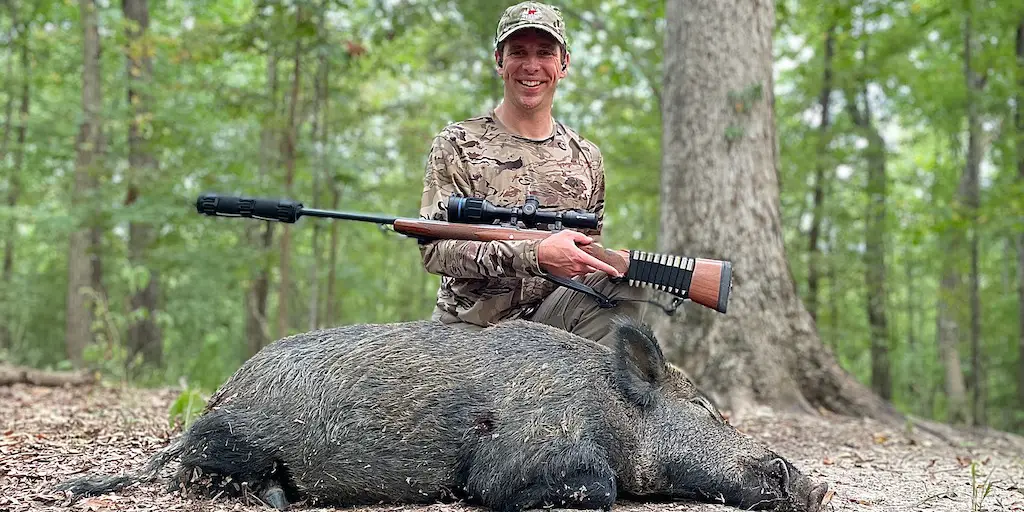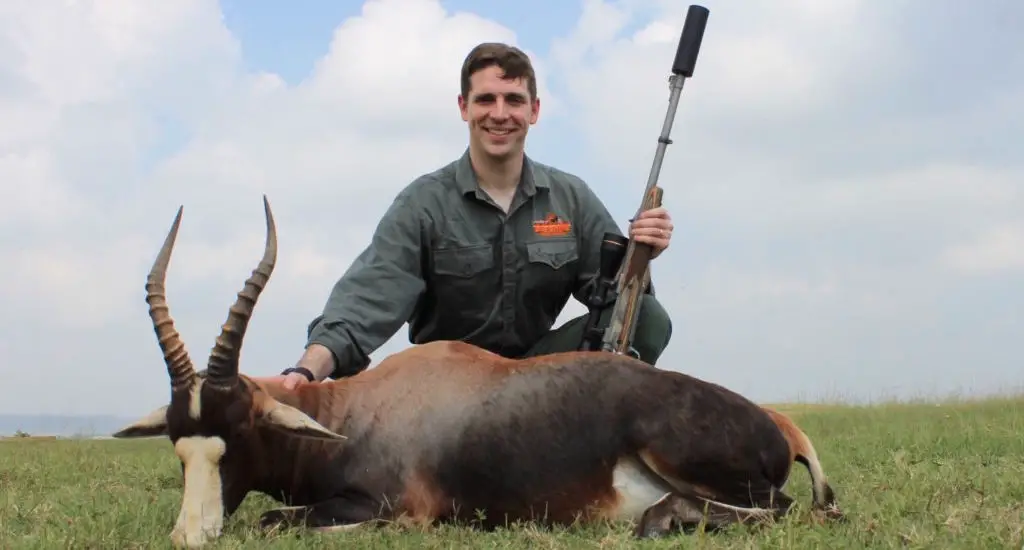Keep reading to learn about the Hearing Protection Act and why you should support it.
Originally introduced by Representative Matt Salmon (R-AZ) all the way back in October 2015, H.R. 3799, better known as the Hearing Protection Act of 2015, was a bill that could completely revolutionize life for hunters and shooters in the United States.
What Is The Hearing Protection Act?
You can read the full text of the bill here, but put simply, the Hearing Protection Act would remove suppressors from regulation under the National Firearms Act of 1934 and would treat suppressors just like rifles and shotguns. Specifically, this bill would allow people to purchase a suppressor after simply passing an instant NICS background check.
This is in stark comparison to the current system of having to pay a $200 transfer tax, send in an application to the ATF, get permission from a local chief law enforcement officer, and potentially wait for months for approval to purchase a suppressor.
Last, but not least, the bill also prohibits states or other local jurisdictions from imposing their own tax or registration requirement for a person to purchase, manufacture, or transfer a suppressor.
The subject of suppressors is actually an area where many countries in Europe and Africa, which generally have very strict gun regulations, have more reasonable laws than the United States. It may be a lot tougher to buy a rifle in South Africa or the United Kingdom when compared to the United States, but buying a suppressor there is much less complicated than in the United States.
For this reason, it is not unusual at all for people to hunt with suppressed rifles in those countries. Indeed, using a suppressor is actually the norm in some parts of Europe and on some Africa hunting safaris.
If the Hearing Conservation Act ends up becoming a law, it would actually put our laws regarding suppressors much more in line with the rest of the world (which, in this case, would be a good thing).
What are the benefits of hunting suppressed?
Contrary to what Hollywood would have you believe, suppressors do not completely silence the report of a gun (hence the name suppressor instead of silencer). Nor are they commonly used by criminals.
However, a good suppressor will significantly reduce the noise of a gunshot by 20-40 decibels. This is about the same reduction in noise provided by most types of hearing protection. In addition to benefiting the people actually on the range, using suppressors can also make life much quieter for those who live near shooting ranges.
What’s not to like about that?
As good as this is for the average shooter, the reduction in noise provided by a suppressor is even better for hunters. When using a suppressor, a hunter doesn’t have to worry about wearing ear protection in the field. Not only does this make it easier to hear game moving, but it also makes it easier to communicate with other hunters.
Using a suppressor when hunting also makes it easier to shoot without scaring animals in the area as much. This makes suppressors a great choice for hunters pursuing heavily pressured animals or doing pest eradication work (like with hogs) where it may be necessary to shoot several different animals out of a single herd.
Another underrated benefit of suppressors is the fact that they can also reduce the muzzle blast and recoil produced by a firearm. While that’s less important with a rifle chambered in something like .22 Long Rifle or even 6.5 Creedmoor, it’s a really big deal for a rifle chambered in a harder hitting cartridge like .300 Win Mag.
Clearly, this can make a suppressor equipped firearm much more pleasant to shoot. For this reason, this makes suppressors a great way to introduce new hunters to the sport without having to worry as much about how they deal with recoil or muzzle blast.
This benefit isn’t limited just to newer hunters either.
Heck, a Banish 46 suppressor transformed my heavy hitting 458 Win Mag from a “too light” rifle that was downright painful to shoot into a still stout recoiling, but much manageable tool to use on big game in thick cover.

Next, I’ve noticed improved accuracy with almost every single rifle I’ve ever shot suppressed compared to that exact same rifle and load unsuppressed.
For instance, my 7mm PRC rifle shoots very accurately (just under MOA) unsuppressed, but those groups tighten up even more when I shoot with a suppressor. This can happen for a variety of reasons ranging from the fact that the rifle is just more pleasant to shoot, but adding a suppressor will also potentially improve barrel harmonics and result in increased accuracy.
Finally, if the Hearing Protection Act were to eventually become a law, it would also help significantly reduce the average cost of a suppressor. Along with the complicated and burdensome regulations that currently accompany getting one, the fact that a good suppressor can cost a pretty penny is a major factor that keeps many shooters and hunters from owning one.
The high price of a suppressor is due in large part to the fact that the market for them is so small and exclusive. It’s a good bet that a number of other companies would join the suppressor market if the Hearing Protection Act became law and suppressor prices would soon come down (which would be a great gift for a hunter on your shopping list).
Enjoy this article on why you should support the Hearing Protection Act? Please share it with your friends on Facebook and Twitter.
Make sure you follow The Big Game Hunting Blog on Facebook, Instagram, Twitter, and YouTube.
NEXT: THESE ARE THE 9 BEST DEER HUNTING CALIBERS
John McAdams is a proficient blogger, experienced shooter, and long time hunter who has pursued big game in 8 different countries on 3 separate continents. John graduated from the United States Military Academy at West Point and is a veteran of combat tours with the US Army in Iraq & Afghanistan. In addition to founding and writing for The Big Game Hunting Blog, John has written for outdoor publications like Bear Hunting Magazine, The Texas State Rifle Association newsletter, Texas Wildlife Magazine, & Wide Open Spaces. Learn more about John here, read some of John’s most popular articles, and be sure to subscribe to his show: the Big Game Hunting Podcast.



I’ve noticed that in New Zealand, hunters are now using suppressors as an approach to reducing sound levels as a part of complying to new noise regulations. They refer to them as “cans” – and to date there hasn’t been an increase in criminals with suppressed weapons. Why is it some countries are for, some against – there’s no reasoning for not reducing a weapons sound, but many reasons to do it.